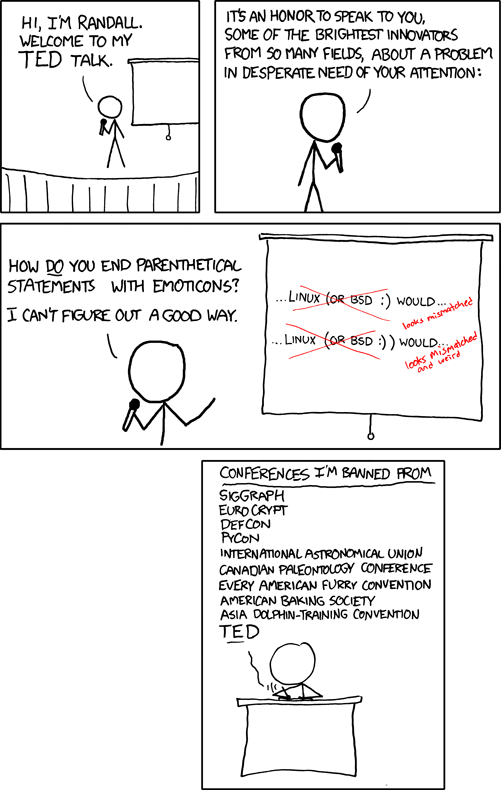If an insertion in parentheses ends with a smiley, how do I distinguish between the two?
I know smileys are not part of written language (yet), and any questions about them are irrelevant to linguistics and are kind of not serious. So take my question with a smiley then.
It bugs me every time I'm facing this situation: if an insertion in parentheses ends with a smiley, what should I do?
- A lot of insertions in parentheses (well, if it's not Lisp :) ) can be annoying.
- A lot of insertions in parentheses (well, if it's not Lisp :)) can be annoying.
- A lot of insertions in parentheses (well, if it's not Lisp :) can be annoying.
I don't like any of the above. Any (clever) suggestions?
Solution 1:
I couldn't resist but post this!

But seriously, I generally avoid ending a bracketed expression with an emoticon. One solution could however be to use square brackets:
A lot of insertions in parentheses [well, if it's not Lisp :)] can be annoying.
Though it's rather non-standard, it at least looks better. I'm sure almost any reader would understand it too.
Solution 2:
It’s the twenty-first century! We have a much better alternative to old ASCII emoticons: Unicode!
A lot of insertions in parentheses (well, if it's not Lisp ☺) can be annoying.
… well, ok, I admit that I do not always like this, either. ☹
Solution 3:
I tend to leave a space on both sides, like this
A lot of insertions in parentheses ( well, if it's not Lisp :) ) can be annoying.
also, using dashes is worth trying
A lot of insertions in parentheses — well, if it's not Lisp :) — can be annoying.